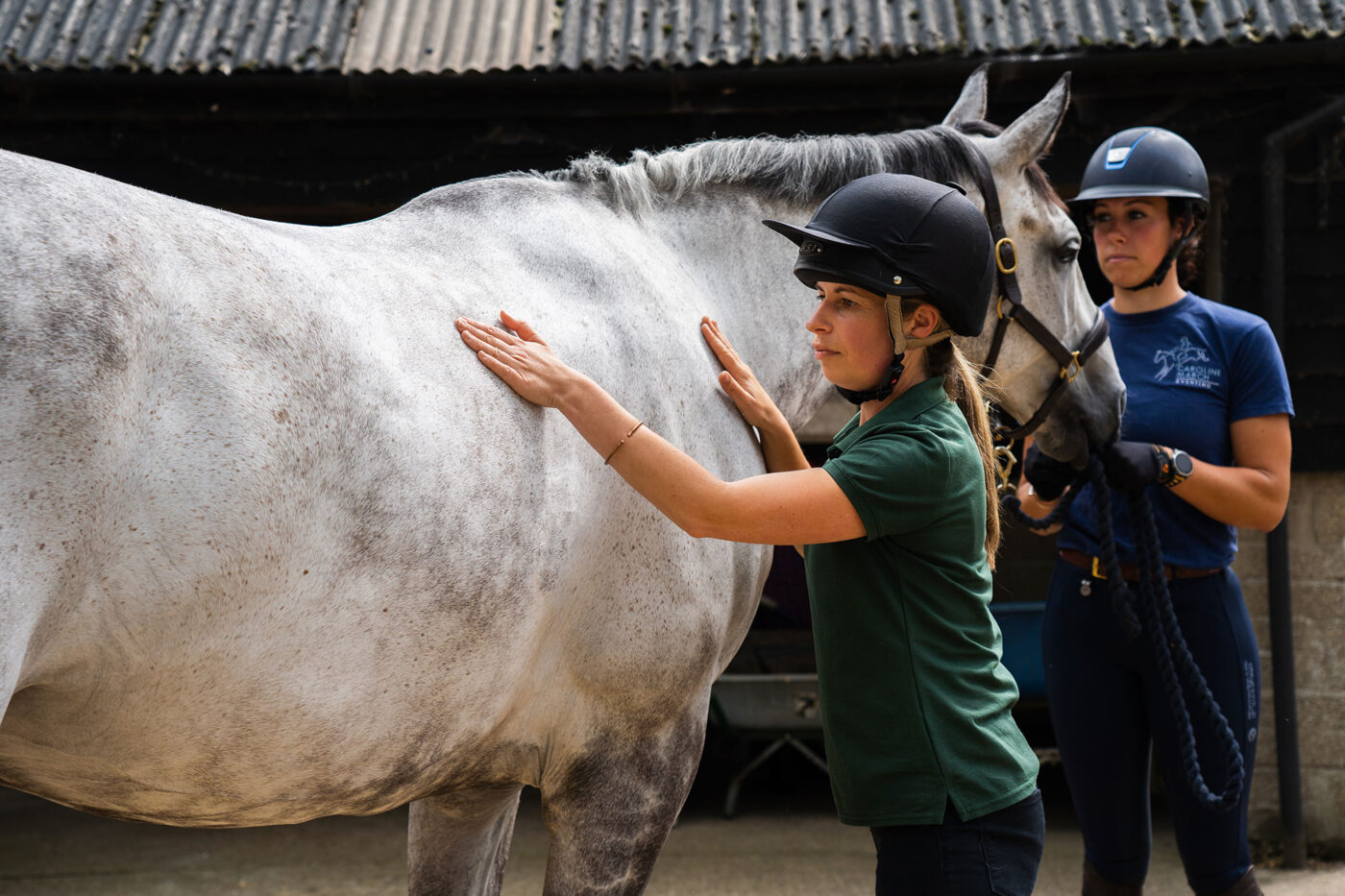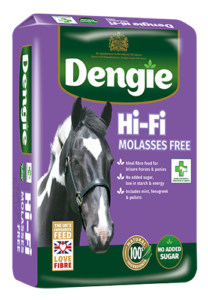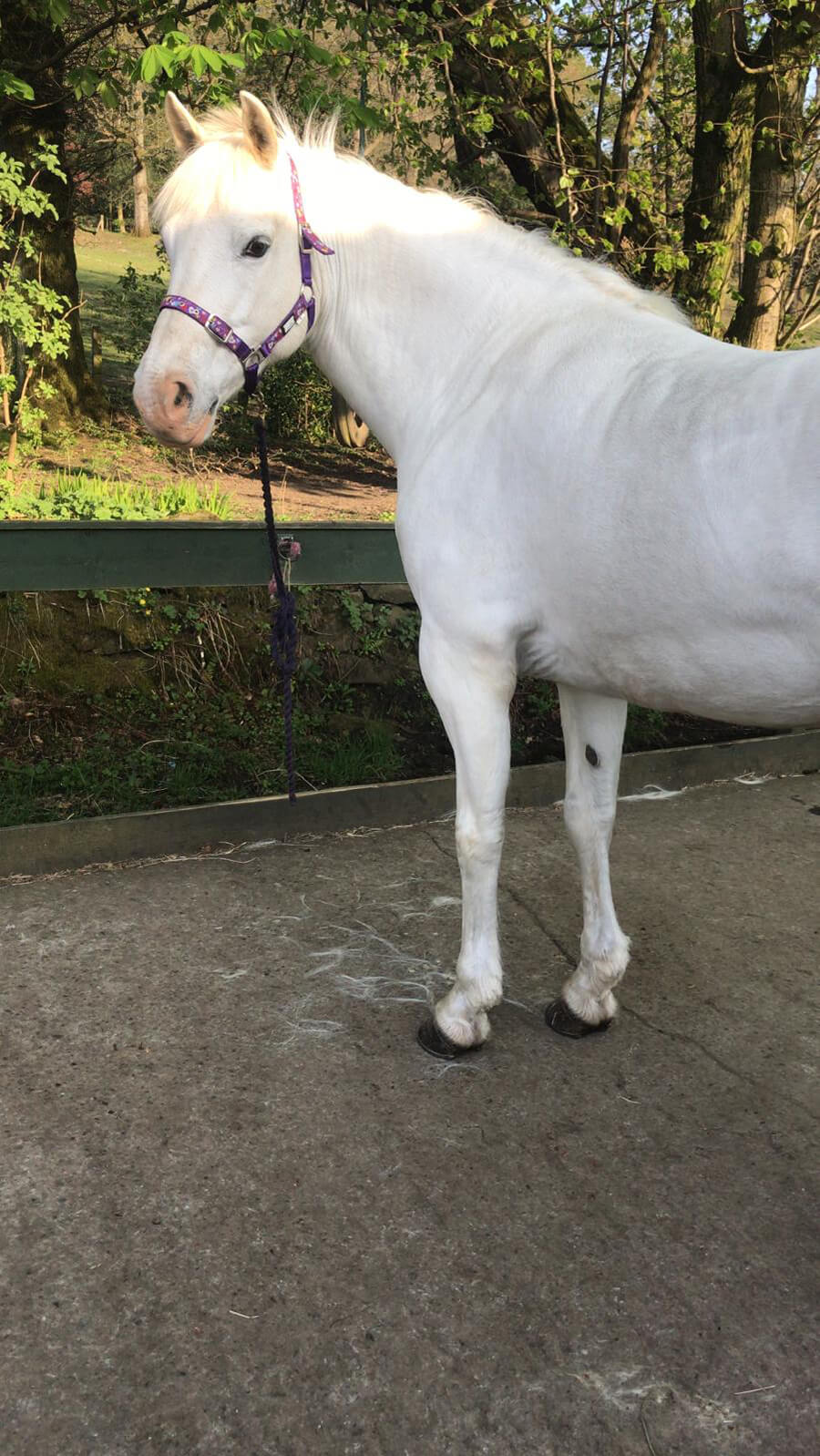Feeding Horses in Summer
Article last updated: 6th July 2022
Feeding horses in summer can be tricky to get right. Sunny weather, lighter evenings and busy competition schedules mean that our horses and ponies may find their workloads and turnout hours increasing, but more time in the field will increase the risk of overindulgence on lush green pasture. Luckily, Dengie are here to help.
The risk of overindulgence
Horses, particularly our hardy native breeds, are naturally designed to put on weight over the spring and summer and lose it again over the colder months. The problem with this is that our domesticated horses are rarely put in the position where they will naturally shed their extra pounds over winter and so enter summer unprepared for the rich grass. This can lead to obesity and increase the likelihood of conditions such as laminitis.
Think carefully about what you are feeding your horse in summer and the work that he is doing. You might be getting out and about a bit more over the summer, but that doesn’t necessarily mean your horse needs any extra feed. He’d need to work for fifty minutes in the school to burn off just half a scoop of low energy cubes, so think twice about everything that you add to his bucket. Always increase workload before you increase energy intake – if he continues to hold his weight well then you know he doesn’t need any extra food.
Battling the bulge
Obesity puts additional strain on the joints, heart and lungs and has links to other health problems. The National Equine Health Survey has shown that around 20% of the equine population is overweight or obese and feedback from vets and nutritionists suggests this figure could be considerably higher. Being overweight increases the risk of laminitis in any horse or pony so to avoid this horrible disease you really need to take action and get your horse’s diet under control. Click here to view the study.
Body fat scoring your horse is a great way to work out if he’s carrying a little extra weight. Describing a horse’s weight is subjective and therefore a condition score chart sets out criteria to make the process more objective. By comparing your horse to the pictures and descriptions, you can get a fairly accurate idea about their condition. Regular condition scoring, in conjunction with using a weigh tape, will help you to spot quickly if your horse’s weight starts to creep up. Click here to learn how to fat score your horse or pony.

Top tips for feeding horses in the summer and weight watching
- Feed according to your horse’s bodyweight, not their workload
- Regularly weigh tape, fat score and take photos, note and plot your horse’s weight progress so you can spot changes and take action
- Practice condition scoring on several different horses so that you learn what you should be looking for
- Always use your weigh tape at the same point in your routine, as your horse’s “girth” and therefore the reading for his weight, will naturally fluctuate throughout the day
- Get a friend to condition score your horse and compare the results – this will help you get a more objective score
- When using a weigh tape, make sure your horse is standing square on a level surface
- Restrict grazing – grazing muzzles, track systems, turnout paddocks, stabling can all be used to reduce grass intake
- Exercise – try schooling, lunging, long-reining, hacking or driving for at least 20 minutes a day – all of which will help your horse’s waistline
 Fabulous fibre feeds
Fabulous fibre feeds
Fibre is what our horses were naturally designed to eat, so if you are looking for a low calorie fibre product to feed your horse in the summer Dengie Hi-Fi Molasses Free is the ideal solution. Containing no added sugar and low in starch, it has an oil coating for slow-release energy and beautiful coat shine and includes tasty mint, fenugreek and pellets. Hi-Fi Molasses Free is free from molasses and preservatives and is ideal for horses prone to laminitis.
One of the brilliant things about fibre feeds is that they weigh very light in a scoop. One large Stubbs scoop of mix weighs around 1.2kg – you’d need to feed almost three scoops of Hi-Fi Molasses Free to achieve the same weight. Added to the fact that fibre feeds take longer to chew than a mix and therefore generates more saliva, this means that a little goes a long way if your horse is on a reduced ration.
Preventative measures
Did you know that grass is often the highest contributor of sugar to the equine diet? Excessive consumption of sugar will lead to weight gain and can trigger the symptoms of laminitis. Grazing muzzles are great for restricting grass intake – studies suggest consumption can be reduced by 75-85% when using one. Other alternatives are a track system, turning out in a well-grazed paddock or spending time in the stable with a low-sugar forage or fibre feed. Dengie Hi-Fi Lite, which is independently approved by The Laminitis Trust, makes a great hay replacer – swapping hay with the same weight of Hi-Fi Lite can reduce sugar intake by up to 50%.
The best way to burn fat is to exercise. Aim for at least twenty minutes a day – if you don’t have time to ride, try lunging, long-reining or even a brisk walk in-hand. Click here for more ideas on how to exercise your horse without riding.
Make sure your horse still receives a balanced ration in the summer
It’s likely that your horse is granted more grazing time over the summer, so you may decide to reduce his hard feed or cut it out altogether. However, this is not without its problems. Your horse or pony may look like he is coping fine without any supplementary feed, but UK soil is generally short of certain minerals that our horses need to be healthy. These include selenium, which boosts the immune system, copper, which is aids the development of bone and cartilage, and zinc, which is important for bone development and healthy hooves and coat. Therefore, a vitamin and mineral supplement should be supplied to your horse either in powder form or as a concentrated balancer pellet.
The benefit of powdered supplements is that they will add no additional calories to the ration. These can be fed with a small quantity of low-calorie chopped fibre, such as Dengie Hi-Fi Lite or Hi-Fi Molasses Free. Alternatively, a balancer comes in a pelleted form and, although it will have a calorie value, does provide a protein value and often includes some extra benefits such as herbs and so may be preferable for fussier horses. Choose a balancer that is specifically designed for good doers if your horse holds his weight well.
Case Study – Izzy at risk of developing laminitis if weight wasn’t under control
When Eleanor bought Izzy in April 2019 for her daughter Jenny, Izzy’s bodyweight was already of major concern due to her previous access to lush pastures and little to no ridden work for many months prior to her purchase. Eleanor’s vet warned her that Izzy would be at high risk of developing laminitis if her weight wasn’t brought back under control. After receiving this worrying information, Eleanor arranged to take part in a Dengie weighbridge clinic for some help devising a diet plan.

![]() Izzy was advised a strict diet of 4kg soaked hay, double netted to help it last longer, as well as using a grazing muzzle to restrict grass intake. A bucket feed of Dengie Hi-Fi Molasses Free with a vitamin and mineral supplement was recommended to provide Izzy with a balanced diet.
Izzy was advised a strict diet of 4kg soaked hay, double netted to help it last longer, as well as using a grazing muzzle to restrict grass intake. A bucket feed of Dengie Hi-Fi Molasses Free with a vitamin and mineral supplement was recommended to provide Izzy with a balanced diet.
Her latest measurement on the weigh tape in March 2021 was 420kg showing an incredible weight loss of over 100kg!
Click here to read Izzy’s full weight loss story.
Ask the Experts
If you would like further help and advise on feeding horses in the summer or would like to know more about any of our products, don’t hesitate to contact the Dengie Feedline team on 01621 841188 or complete our Feed Advice Form.



